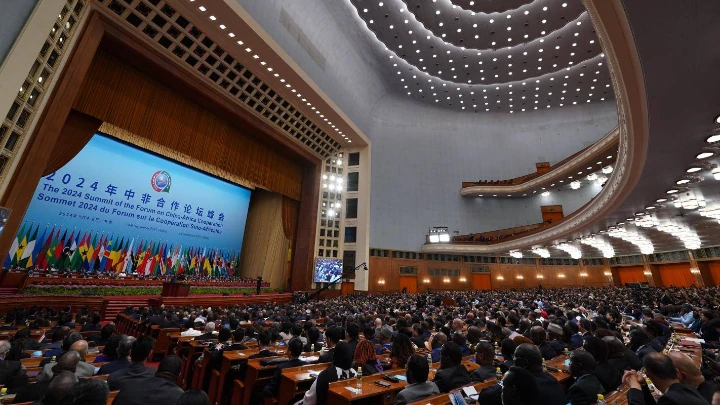Less grandiose than the 2018 iteration, the summit nonetheless highlighted China’s continued attraction for African leaders. 51 African heads of state were present – many more than are scheduled to speak at the UN General Assembly this month. However, the summit also revealed potential tensions between China’s geopolitical ambition and the views of a diverse and rapidly changing continent.
Debt and sovereignty
The first point of contention is over debt. China stopped short of offering broad-based debt relief at FOCAC, which many African states hoped for to allay rising concerns over debt sustainability. Instead, it pledged $50.7 billion in credit lines and funding over the next three years, with an emphasis on trade and investment partnerships.
This is a substantial figure but far less ambitious than pre-2016 levels. China’s reluctance to offer sweeping debt cancellation reflects caution shaped by domestic financial constraints and global economic uncertainty. It also signals a shift towards a more restrained and pragmatic lending policy, focused on trade relations rather than debt-driven infrastructure investments.
This may prove to be a more sustainable and mutually beneficial strategy. China is prioritizing the growth of African exports, especially in agriculture and natural resources. Such an approach aligns Africa’s economic development goals with China’s need for secure access to resources, particularly in areas such as energy security.




